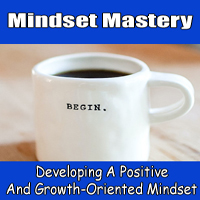



Personal development is a lifelong journey of self-improvement, growth, and self-discovery. It is a path to becoming the best version of yourself, both personally and professionally. To embark on this transformative journey, one needs to grasp the essential keys to personal development.
Self-Awareness: The journey of personal development begins with self-awareness. Understanding your strengths, weaknesses, values, and beliefs provides a solid foundation for growth. By recognizing your current state, you can identify areas that require improvement and set clear goals for your development.
Goal Setting: Setting meaningful and achievable goals is crucial for personal development. Goals provide direction and purpose. They help you focus your efforts and measure your progress. Whether your goals are related to career, relationships, or self-improvement, they act as stepping stones toward your ideal self.
Continuous Learning: A commitment to lifelong learning is a cornerstone of personal development. Seek knowledge, acquire new skills, and embrace opportunities for growth. Reading, attending workshops, taking courses, and seeking mentorship are excellent ways to expand your horizons.
Resilience And Adaptability: Personal development often involves facing challenges and setbacks. Resilience is the ability to bounce back from adversity, while adaptability is the skill of embracing change. Both traits are vital for personal growth, as they enable you to overcome obstacles and thrive in an ever-changing world.
Self-Reflection: Regular self-reflection is essential for personal development. It helps you assess your progress, refine your goals, and adjust your strategies as needed. Self-reflection also fosters mindfulness and helps you make informed choices.
Time Management: Effective time management is a key to personal development. By prioritizing tasks and managing your time efficiently, you can make the most of each day, maximizing your productivity and progress.
Seeking Feedback: Personal development often benefits from external feedback. Seek input from mentors, peers, and trusted individuals who can provide constructive advice and guidance. Constructive feedback can highlight areas for improvement and offer fresh perspectives.
Positive Mindset: A positive mindset is the fuel for personal development. Cultivate optimism, focus on solutions rather than problems, and maintain a can-do attitude. A positive mindset not only boosts your confidence but also attracts opportunities and positive outcomes.
Healthy Relationships: Your relationships play a significant role in personal development. Surround yourself with people who support and encourage your growth. These relationships can provide valuable insights, inspire you, and offer emotional support.
Consistent Action: Personal development requires consistent action. It's not enough to set goals; you must also take concrete steps toward achieving them. Regular and disciplined effort is necessary for meaningful progress.
Adaptation And Flexibility: Be open to adaptation and change as you embark on your personal development journey. Sometimes, the path you originally planned may lead to unexpected opportunities or detours. Be flexible in embracing new possibilities.
Self-Care: Taking care of your physical and mental well-being is an integral part of personal development. Ensure you get adequate rest, exercise, and maintain a healthy work-life balance. Your health is the foundation for your personal growth.
Personal development is a dynamic and lifelong journey that requires dedication, self-awareness, and continuous effort. The keys to personal development include self-awareness, goal setting, learning, resilience, self-reflection, time management, seeking feedback, fostering a positive mindset, nurturing healthy relationships, consistent action, and self-care. By embracing these keys, you can unlock your full potential, achieve your goals, and lead a more fulfilling and purpose-driven life. Remember that personal development is a continuous process, and as you grow and evolve, your journey will continue to unfold, presenting new opportunities for growth and self-improvement.
 The Nature Of Quiet Retreat: Introverts' quiet retreats are not about isolation or avoidance of others. Rather, they represent a conscious choice to withdraw from the external world and immerse themselves in solitude. These moments serve as a source of mental and emotional rejuvenation.
The Nature Of Quiet Retreat: Introverts' quiet retreats are not about isolation or avoidance of others. Rather, they represent a conscious choice to withdraw from the external world and immerse themselves in solitude. These moments serve as a source of mental and emotional rejuvenation.
A Sanctuary For Recharging: Introverts draw energy from these retreats. Unlike extroverts who recharge in the company of others, introverts find their strength in solitude. These retreats offer a sanctuary where they can replenish their inner resources and regain a sense of balance.
Deep Reflection And Self-Discovery: During quiet retreats, introverts engage in deep introspection. They reflect on their thoughts, emotions, and experiences, allowing them to gain a profound understanding of themselves. This self-discovery is a cornerstone of personal growth, as it empowers introverts to make informed decisions and set meaningful goals.




 1. Recharging In Solitude: Introverts have a well-documented need for solitude and personal space to recharge their mental and emotional energy. Privacy is the key to creating this space for themselves, allowing them to unwind, reflect, and regain their vitality. Without these moments of privacy, introverts can feel drained and overwhelmed.
1. Recharging In Solitude: Introverts have a well-documented need for solitude and personal space to recharge their mental and emotional energy. Privacy is the key to creating this space for themselves, allowing them to unwind, reflect, and regain their vitality. Without these moments of privacy, introverts can feel drained and overwhelmed.
2. Self-Reflection And Growth: Personal boundaries give introverts the freedom to engage in self-reflection and personal growth. They can use this space to assess their goals, values, and beliefs, which leads to a deeper understanding of themselves and the world around them. It's in this private realm that they discover their passions and set the course for their life's journey.
3. Creative Freedom: Privacy fosters an environment in which introverts can fully explore their creativity. They often have a rich inner world brimming with imaginative ideas. These personal boundaries offer them the space they need to nurture their creative endeavors without external interruptions or judgments.
4. Emotional Regulation: Introverts use their privacy to regulate their emotions effectively. When feeling overwhelmed or stressed, they can retreat to their personal space to process their feelings and regain emotional balance. This is essential for their mental health and overall well-being.
 1. Set Clear And Compelling Goals: One of the most potent sources of self-motivation is having clear and compelling goals. When you know exactly what you want to achieve and why it matters, you're more likely to find the inner drive to tackle tasks and avoid procrastination. Set specific, measurable, achievable, relevant, and time-bound (SMART) goals to keep yourself on track.
1. Set Clear And Compelling Goals: One of the most potent sources of self-motivation is having clear and compelling goals. When you know exactly what you want to achieve and why it matters, you're more likely to find the inner drive to tackle tasks and avoid procrastination. Set specific, measurable, achievable, relevant, and time-bound (SMART) goals to keep yourself on track.
2. Visualize Success: Visualization is a powerful self-motivation technique. Take a few moments to picture the successful completion of a task or the achievement of a goal. Imagine the sense of accomplishment and satisfaction you'll experience. This mental imagery can provide the motivation needed to overcome procrastination.
3. Break Tasks Into Smaller Steps: Large or complex tasks can be overwhelming, leading to procrastination. Break them down into smaller, more manageable steps. This approach makes the overall task seem less daunting and allows you to tackle it one step at a time, which can boost motivation.
4. Use Positive Affirmations: Positive affirmations are powerful statements that reinforce your self-belief and motivation. Use affirmations to remind yourself of your capabilities and your ability to overcome procrastination.
Overcoming The Impostor Within
 The Origins Of The Fear Of Being Exposed
The Origins Of The Fear Of Being Exposed
The fear of being exposed often has deep-seated roots in one's psyche. It can stem from childhood experiences, societal pressure, or unrealistic expectations, all of which contribute to a sense of inadequacy. Some individuals develop this fear as a response to external criticism or pressure to conform to unrealistic standards of perfection. As a result, they internalize the belief that they must constantly hide their vulnerabilities to maintain a facade of competence.
Impostor Syndrome And The Fear Of Exposure
The fear of being exposed is a hallmark feature of impostor syndrome, a phenomenon that plagues high-achievers who doubt their own abilities and believe they don't deserve their success. Impostor syndrome often manifests as a fear of being discovered as a fraud, even when external evidence suggests otherwise. The fear of exposure can be particularly paralyzing because it fuels self-doubt and inhibits individuals from fully embracing their accomplishments.
Strategies To Overcome The Fear Of Being Exposed
Acknowledge Your Feelings: The first step to conquering the fear of being exposed is recognizing and acknowledging it. Understand that these feelings are common and do not reflect your true capabilities.
Challenge Negative Self-Talk: Combat the inner critic by questioning and challenging negative self-talk. Replace self-deprecating thoughts with affirmations of your achievements and capabilities.
Seek Support: Sharing your feelings with trusted friends, mentors, or a therapist can provide valuable perspective and emotional support. Sometimes, talking through your fears can help alleviate their power.
 Embracing Challenges: Individuals with a growth-oriented mindset welcome challenges as opportunities for learning and improvement. They see difficulties not as obstacles but as stepping stones on their journey to success. This attitude encourages them to step out of their comfort zones and tackle new, unfamiliar tasks.
Embracing Challenges: Individuals with a growth-oriented mindset welcome challenges as opportunities for learning and improvement. They see difficulties not as obstacles but as stepping stones on their journey to success. This attitude encourages them to step out of their comfort zones and tackle new, unfamiliar tasks.
Continuous Learning: In a growth-oriented mindset, learning is a lifelong journey. These individuals understand that personal and professional development is an ongoing process. They actively seek knowledge, skills, and experiences that contribute to their growth and development.
Effort And Persistence: People with a growth-oriented mindset recognize that effort and persistence are the keys to success. They understand that mastery in any field requires hard work and dedication. Instead of being discouraged by initial failures, they use setbacks as motivation to try again and improve.
Resilience: A growth-oriented mindset promotes resilience.